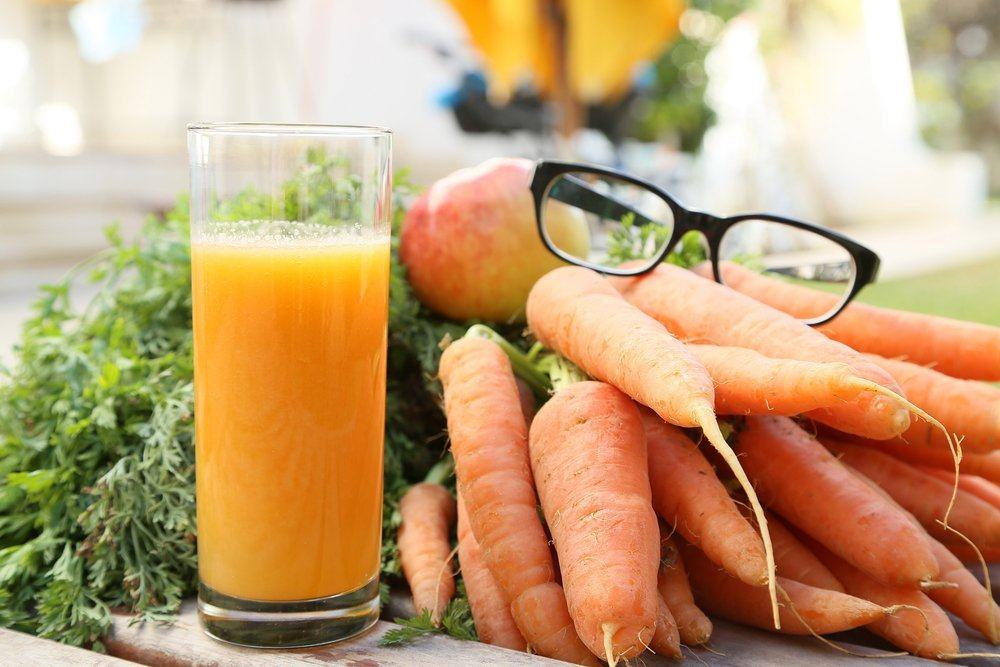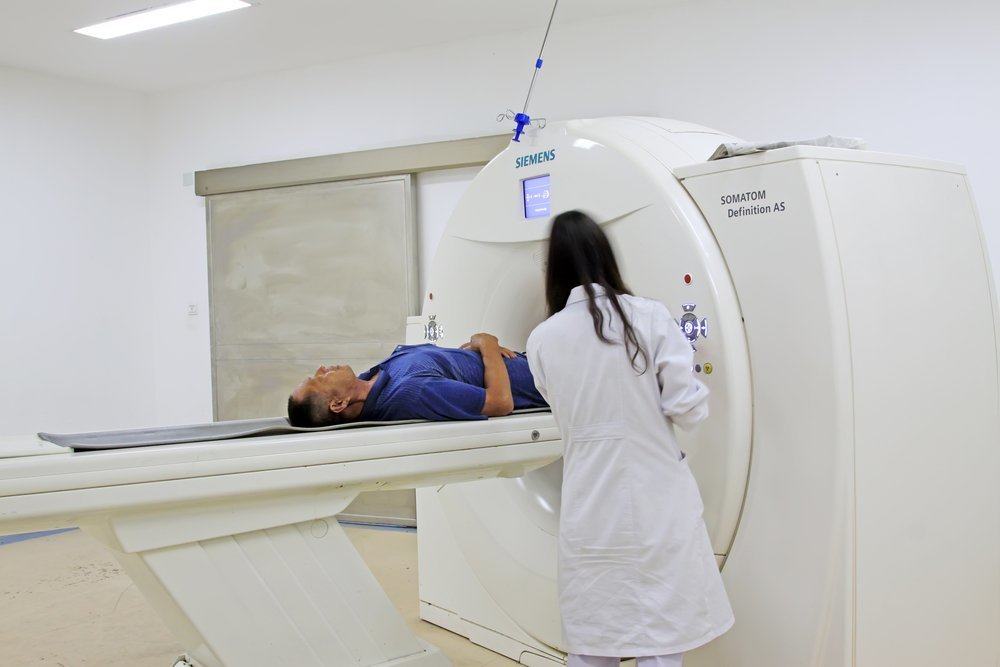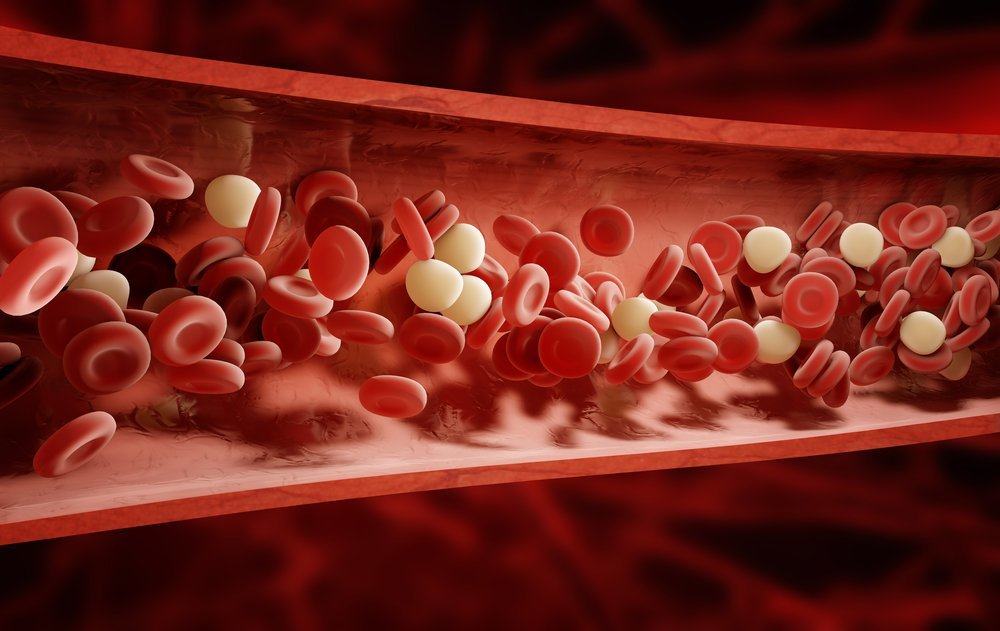Contents:
- Medical Video: Best Food For Eyes - Reducing Chronic Inflammation With Food
- Carrots are rich in vitamin A
- Is it true that vitamin A can improve vision?
- Other substances are also needed to improve eye health
Medical Video: Best Food For Eyes - Reducing Chronic Inflammation With Food
"Eat carrots so that their eyes are healthy!", People say. From childhood, we have been taught that carrots can maintain the health of our eyes. So, parents generally put carrots as mandatory food ingredients for their children. However, is it true that carrots really can improve eye health or is this just a myth?
Carrots are rich in vitamin A
Carrots are fruits that contain lots of vitamin A in the form of beta-carotene (carotenoids) that can improve your eye health. Vitamin A helps the eyes to see. This is done by vitamin A by helping convert the light received by the eye into a signal that can be transmitted to the brain. This then makes people see in low light conditions.
When you eat carrots that contain beta-carotene, the body will convert the beta-carotene to vitamin A in the form of retinol. Retinol can be found in eye cells called stem cells. These cells will convert light into images in the brain, so you can see in weak light.
From the explanation above, it can be concluded that vitamin A is needed for vision. Severe vitamin A deficiency can cause eye diseases, and can even cause blindness.
Please note that vitamin A, is divided into two forms, namely:
- Retinoids. This form of vitamin A is usually found in animal food sources, such as liver, fish oil (eg cod-liver oil), and butter. Consuming foods that contain high amounts of retinoids can cause excess vitamin A in the body and this is not good. Excess vitamin A can cause poisoning, or it can also increase the risk of certain cancers.
- Carotenoids (beta-carotene). Usually found in plant-based food sources, such as carrot, broccoli, sweet potato, pumpkin, and green leafy vegetables. These carotenoids will be converted to vitamin A in the body. How many betacarotene will be converted depends on how much vitamin A levels you have in your body. The body will not convert beta-carotene to vitamin A if the body does not need it. So, excess vitamin A in the form of beta-carotene will not make you poisoned.
Is it true that vitamin A can improve vision?
It is true that vitamin A is very useful for vision health. In fact, it is needed to support the eye's ability to see. However, according to Professor Algis Vingrys, from the University of Melbourne Department of Optometry and Vision Services, carrot consumption will not improve your vision if you have applied a diet with balanced nutrition.
By applying a balanced nutrition diet, it means that your vitamin A needs have been fulfilled well and are enough to help the eye's ability to see. So, with the additional consumption of carrots that aim to improve your vision, then this is not something that can produce results, if you consume enough vitamin A.
However, consuming carrots or other sources of vitamin A has been shown to improve night vision in people who are deficient in vitamin A in the body or for those who do not apply a diet with balanced nutrition.
Other substances are also needed to improve eye health
An eye study called the Blue Mountains in Australia showed that the reduced ability to see participants in the study turned out to be caused more by age-related damage, not because of lack of food containing vitamin A. So, their vision would not increase, even though they consume lots of carrots or other foods that contain vitamin A.
Beta-carotene is indeed good for the health of our eyes as a whole. However, it turns out that lutein and zeaxanthin, which are commonly found in green vegetables and carrots, are also needed to improve your eye health. Lutein and zeaxanthin work together to protect the macula of the eye, so that your eyes do not lose their sensitivity with age.
So, not only betacarotene in carrots is needed to maintain eye health, but lutein and zeaxanthin which are commonly found in green vegetables, such as spinach, kale leaves and broccoli, are also needed for eye health. Remember, consuming lots of carrots or vitamin A won't dramatically improve your vision, but this can help you maintain better eye health. The most important thing is that you apply a balanced nutrition diet that contains vitamin A, lutein and zeaxanthin, to maintain your eye health to old age.
READ ALSO
- 5 Quick Ways to Eliminate the Disturbing Eyes
- 8 Eye Disorders That Can Be Symptoms of Serious Disease
- 7 Characteristics of the Eye of the Shoulder that Must Be Cautioned












